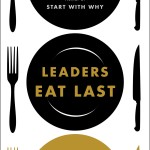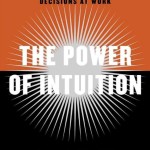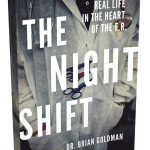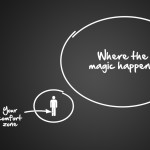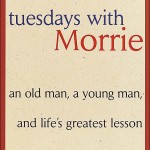“recent research has shown that when we empathize, the brain activates many of the same networks as when we ourselves experience pain, physical or otherwise.”
What is your emotional fingerprint?
Why are some people so quick to recover from setbacks? Why are some so attuned to others that they seem psychic? Why are some people always up and others always down? In his thirty-year quest to answer these questions, pioneering neuroscientist Richard J. Davidson discovered that each of us has an Emotional Style, composed of Resilience, Outlook, Social Intuition, Self-Awareness, Sensitivity to Context, and Attention. Where we fall on these six continuums determines our own “emotional fingerprint.”
Sharing Dr. Davidson’s fascinating case histories and experiments, The Emotional Life of Your Brain offers a new model for treating conditions like autism and depression as it empowers us all to better understand ourselves—and live more meaningful lives. [From: Amazon.com]
Neuropsychologist Richard Davidson and science writer Sharon Begley explain how your brain chemistry affects the way you think, feel and live – and whether you can change your emotional style. Many neuroscientists used to believe that thinking and emotions run on separate brain circuitry. But new studies using neuroimaging have challenged conventional notions about the brain’s role in emotions. Davidson has identified distinct emotional styles and their connection to patterns of activity throughout the brain. Locating the bases of emotion partly in the brain’s seat of reason implies people have a greater ability to change than was once thought. In their new book, Davidson and Begley argue that we can retrain our brains so that we can become more resilient, less negative and, possibly, happier. The science behind emotions. [From: Thedianerehmshow.org]
“mindfulness meditation will transform your reactivity to the signals by turning down the volume on your amygdala and orbital frontal cortex. But if you have trouble discriminating internal bodily cues, mindfulness meditation can amplify them by increasing the gain on the insula.”
Not so long ago scientists downplayed emotions as cognitive flotsam, the product of primitive brain structures that derail logic and reasoning in more evolutionarily sophisticated regions of the cortex. Dramatic advances in brain imaging, however, are challenging that perspective. As psychologist Davidson argues in his new book,The Emotional Life of Your Brain, emotions are crucial to how the mind works.
According to Davidson, just as exercise can turn a flabby stomach into a six-pack, mental training such as meditation can fine-tune the brain and, consequently, your emotional style, which he defines as the consistent way of responding to the experiences of our lives. With science journalist Begley, Davidson maps the six dimensions of emotional style – resilience, outlook, social intuition, self-awareness, sensitivity to context, and attention. The authors also provide user-friendly questionnaires for readers to assess where they fall on those scales.
Davidson made waves in 2004 and 2007 after he recorded brain activity in Buddhist monks who were masters at meditation. He found that meditating caused lasting modifications to their brain’s wiring, creating stronger connections among regions important to attention, motivation and empathy and increasing brain activity, all of which help to explain the clarity that practitioners report. Davidson’s discovery formed the basis for his theory that even ordinary people can change their emotional style by tweaking their behavior. A study published in 2011 in Psychiatry Research Neuroimaging supports this idea by revealing that even novice meditators showed an increase in gray matter, responsible for learning, memory and self-awareness.
Only in the final chapter does Davidson suggest self-improvement techniques, such as ways to develop a more positive outlook, become more self-aware or build resilience. He acknowledges, too, that certain methods, such as well-being therapy, in which practitioners affirm their self-worth and make a point of expressing gratitude and offering compliments, remain unproved. Still, evidence indicates that some techniques, especially meditation, do restructure the brain regions and neural connections associated with specific emotional styles. Whether they will enhance your life, well, only you can say. [From: Scientificamerican.com]
University of Wisconsin professor of psychology Richard J. Davidson’s latest entry in the mind/body health industrial complex, The Emotional Life of Your Brain: How Its Unique Patterns Affect the Way You Think, Feel, and Live — and How You Can Change Them, written along with scientific journalist Sharon Begley, is a nicely documented discussion of the brain as the seat of what he calls “emotional style.” Each individual, he tells us, is characterized by his own “emotional style,” a “consistent way of responding to the experiences of our lives.” And luckily, whatever your emotional style, if you’re not happy with it, you’re not stuck with it. Read the book and you can change it.
Davidson identifies six dimensions that, taken together, define the individual’s emotional style based on his and others’ neuroscientific research. These six dimensions — Resilience, Outlook, Social Intuition, Self Awareness, Sensitivity to Context, and Attention — are functions of different parts of the brain, and are present in different degrees in all people. Each is a continuum, and we all fall into place on that continuum based on brain function. So, for example, at one end of Resilience there are those who recover from adversity quickly, at the other those who are slow to recover. All of us fall somewhere between the two, some closer to one end, some closer to the other. The combination of where we stand on each dimension is our emotional style.
He doesn’t make absolute value judgments about the extremes of each dimension, but recognizes that almost any place on the continuum can be healthy or unhealthy depending on the individual’s specific situation. However, if you should find that any one of these elements is a problem, research has demonstrated that it can be changed. The brain is plastic and its functions can be reworked. To this end, he provides readers with a scale upon which to measure their own emotional style and then after explaining a variety of experiments illustrating how changes have been made, offers a series of do-it-yourself exercises. This is not one of those “don’t try this at home” advice books. You want to become more self aware, Davidson tells you how to go about it. Less self aware, he tells you that too.
Not a brain scientist myself, I can’t vouch for the authority of what Davidson says, but from a layman’s point of view, he makes a convincing case and he certainly has the academic credentials to back up his ideas. The Emotional Life of Your Brain is filled with descriptions of supporting experimental research, both with animals and human subjects. Most importantly this research is explained with a lucidity that makes it almost possible to follow, even for the scientifically challenged. True, there is a good bit of brain science jargon, but again not so much that all but those who fall on the low end of the attention spectrum will have any significant problem dealing with (although I must admit to some trepidation when faced with “dorsolateral prefrontal cortex”).
Davidson supplements his theories with something of a personal narrative of his interest in the brain as a seat of emotions and its effects on his academic career. He doesn’t have much good to say about the behavioral school of psychology which dominated the field when he began his studies. He tends to paint himself as a rebel against the establishment as he pursued his ideas, despite a lack of early encouragement and again in his embrace of Eastern meditation. The personal information and snarky remarks about the establishment add some welcome narrative spice to the book. [From: Blogcritics.org]
“People who are very Tuned In to context tend to have strong connections from the hippocampus to areas in the prefrontal cortex that control executive functions and that hold long-term memories in the neocortex.”
What Others Say:
From the Publisher:
“The Emotional Life of Your Brain is an eye-opener, replete with breakthrough research that will change the way you see yourself and everyone you know. Richard Davidson and Sharon Begley make a star team: cutting-edge findings formulated in a delightful, can’t-put-it-down read. I loved this book.” -Daniel Goleman, Ph.D., author of Emotional Intelligence
Martin E. P. Seligman:
“What a gift from the world’s leading neuroscientist who works on what makes life worth living. This is a must-read for everyone who is interested in positive psychology.”
Daniel Goleman:
The Emotional Life of Your Brain is an eye-opener, replete with breakthrough research that will change the way you see yourself and everyone you know. Richard Davidson and Sharon Begley make a star team: cutting edge findings formulated in a delightful, can’t-put-it-down read. I loved this book.
Deepak Chopra:
Richard Davidson and Sharon Begley have created a pioneering look at the brain chemistry of our emotions. By looking at Davidson’s scientific proof that meditation and other cognitive practices actually change the brain, the authors enable all of us to genuinely modify our most difficult emotional habits and create new and more fruitful ones. Look forward to cultivating keener attention, having more attunement to others, and being more connected to your own intuition. It’s all possible – and this book shows you how.
Jack Kornfield:
The best book I know on how to use the exciting discoveries of neuroscience to change your life. A fabulous read – a scientific adventure story like Sherlock Holmes meeting Watson and Crick with the Dalai Lama as their advisor.
[These Reviews are from Barnesandnoble.com]
About the Authors:
If you like this story, CLICK HERE to join the tribe of success-minded people just like you. You will love our weekly quick summaries of top stories, talks, books, movies, music and more with handy downloadable guides, cheat sheets, cliffs notes and quote books.
And, you can opt-out at any time – no strings, promise… CLICK HERE






